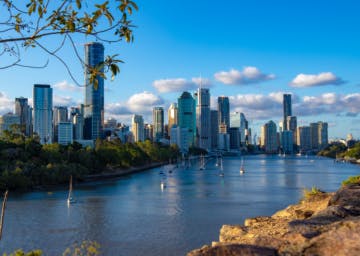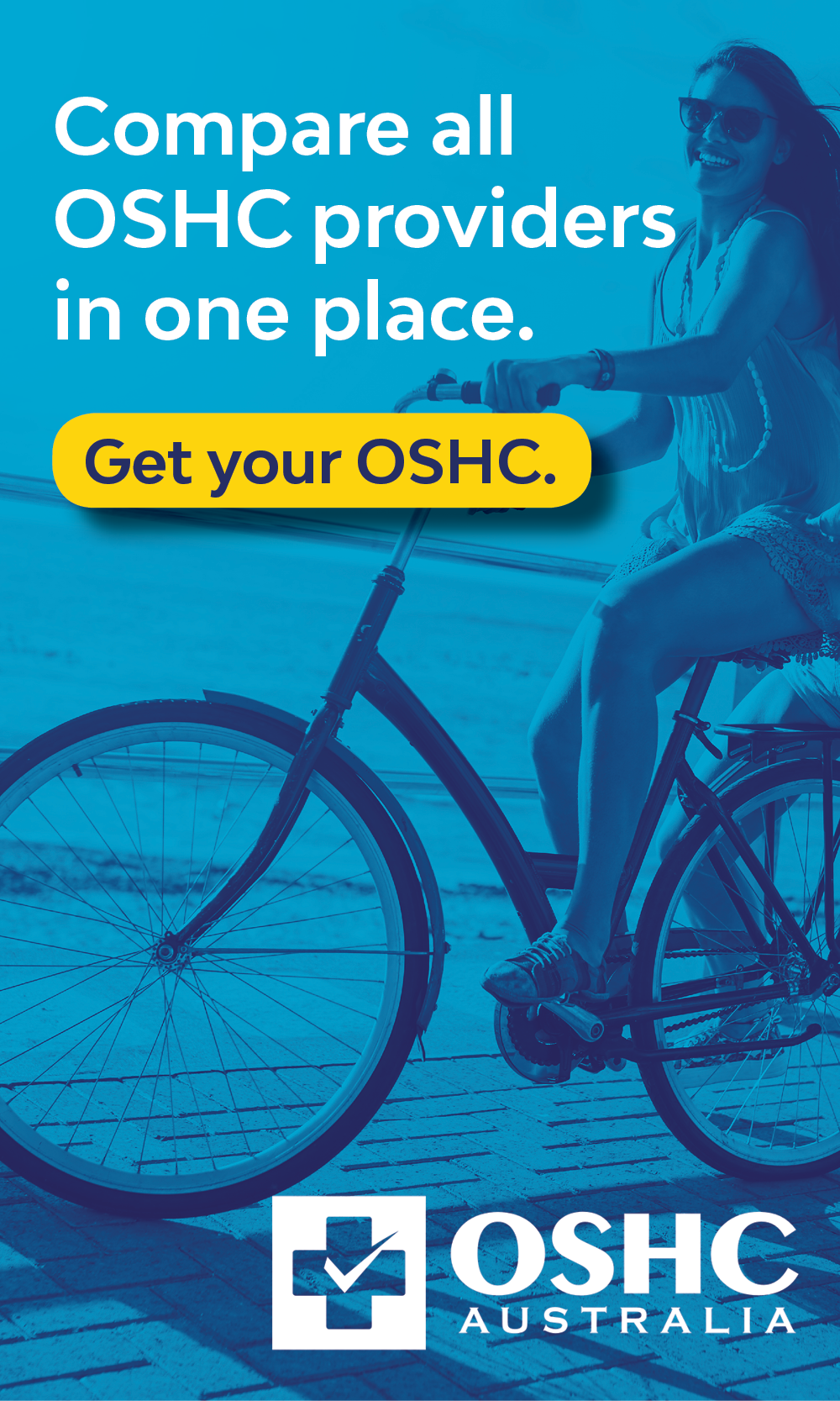Brisbane is the capital of Queensland, Australia, and will make a great home for you while living and studying abroad. With more than 300 days of sunshine per year, Brissy (as the locals call it) rarely falls below 20°C during the day, even in winter. Apart from the wonderful weather and casual laid-back lifestyle, Brisbane is one of Australia’s most affordable cities without having to compromise in quality.
Brisbane offers international students world-class universities, with some of Australia’s finest higher education institutions located a short 2-10 kilometres from the CBD. Brissy is a diverse city with 21.7% of residents born outside Australia and 16% speaking a language other than English at home. It makes it an exceptionally inclusive, multicultural city, and international students will feel right at home.
Discover all the perks to living in Brisbane, from events, parks, facilities and recreation opportunities via the Brisbane City Council and Visit Brisbane websites, also check out the Brisbane instagram account to keep up to date on the coolest locations around the city.
Set up your finances to get the best experience out of your time in Brisbane. Plan ahead, set financial habits and choose realistic living options to ensure success. We have compiled everything you need to know about budgeting for your big move, including average costs of accommodation, transport, health, admin, entertainment and phone charges in Brisbane, Australia.
Accommodation
Campus accommodation
The average cost of living on campus at a university in the Brisbane area ranges between $485 – $645 per week. Campus accommodation is an expensive option, but will come with perks and added convenience. You not only wake up daily on the university’s doorstep but you save money on other expenses such as food and transport.
Have your meals cooked for you everyday, utilities included and lower travelling fees. However, don’t forget to factor in costs for eating out, health, phone bill and entertainment.
Weekly cost: $485 – $645
Annual cost: $23,280 – $30,960
Student accommodation
Get a similar lifestyle to living on campus with off-campus student accommodation at a more affordable price. You can rent a room in a student residential complex, which usually includes a bed, a desk, some storage, and shared bathrooms, kitchens and common rooms.
Commercial accommodation for students is scattered across Brisbane’s CBD and South Bank Area. Student accommodation such as Student One, Scape, Iglu, UniLodge, Urbanest, Brisbane Students and Atira are great options if you want to stay somewhere in the city centre and near other international students.
The cost will vary depending on the company and your room choice, however, it’s important to remember this only includes your rent and utilities. Food, entertainment, eating out, phone and health costs will all need to be budgeted.
Weekly cost: $195 – $500
Annual cost: $9,360 – $24,000
Sharehouse accommodation
On average, organising accommodation in a sharehouse will work out to be the cheapest option when you move to Australia. However, forecasting a budget for a sharehouse can be tricky, for example;
- Where is it located?
- How many tenants are you moving in with?
- How old is the house?
Your individual preference on the factors above will impact the price. On average you can expect to pay between $120 – $250 per week in Brissy, keeping in mind this does not include your utilities. Flatmates and Flatmate Finders are popular sites to find shared accommodation in Brisbane and may help you fall on the cheaper end ($120) of the rental price.
To note: When signing a lease for a share house in Australia you are expected to pay an upfront security bond payment to the RTBA (Residential Tenancies Bond Authority). The standard is 4 x your weekly rent payment, but could be more depending on the individual home. Once you have decided to move out of your sharehouse, you will receive your bond back (minus any damages or cleaning fees).
Weekly cost: $120 – $250
Annual cost: $5,760 – $12,000
Temporary accommodation
If you aren’t sold on any of the above options you can always book in something short-term when you first get to Australia and settle on a long-term option later. Having the option to fly over and check out the university and surrounding suburbs will give you the freedom to have a good look around and get a feel for the place so you can be sure of what will suit you best.
Because this is a short-term option, we suggest looking into short stay accommodation. YHA Australia has plenty of options or you can check out lower rate hotels on Wotif and Last Minute, which both offer advance and last-minute discounts.
Weekly cost: $142 – $460
Monthly cost: $568 – $1,840
Cost of being 100% sure of your accommodation choice before you commit: PRICELESS
Utilities
You can’t forget to factor in utilities. Utilities may or may not be included in your housing option. Electricity, water, gas and internet are generally split between tenants, but if you are planning on renting by yourself, this will be more costly. An average home in Brisbane costs:
- Electricity: $500 per quarter
- Water: $300 per quarter
- Gas: $169 per quarter
- Internet: $120 per quarter
Depending if this is split between five people or just yourself the below budget is set.
Weekly cost: $15 – $80
Annual cost: $780 – $4,356
Accommodation annual range $6,540 – $35,316
Transport
Commuting to and from classes has never been so simple. Brisbane transport offerings include buses, trains, and ferries (referred to as CityCats). Eligible full-time uni, TAFE and post-secondary students can apply for a 50% concession fare on TransLink public transport services (excluding Airtrain), regional qconnect bus services and approved regional ferry services. Brisbane students receive a 25% discount on bike hire with CityCycle. There’s also a free CityHopper ferry to jump between the city, South Bank and Kangaroo Point.
Weekly cost: $15 – $35
Annual cost: $720 – $1,680
Transport annual range $720 – $1,680
Food & drinks
Food. This is where budgeting gets tricky. With the rise of UberEats and MenuLog in Australia, it is getting harder and harder to save our pennies and cook or prepare meals at home. However, buying groceries and meal prepping is the most cost-efficient method.
Groceries
Depending on your taste preferences and whether you are eating salmon or sticking with canned beans for dinner the average cook up at home will cost you:
- $2 a day for breakfast
- $5 a day for lunch
- $11 a day for dinner
Eating out
Eating out will cost you a significant amount more, with the average prices of meals in Brisbane:
- $18 for breakfast
- $18 for lunch
- $30 per meal at dinner.
Drinking out
Coffee, Coffee, COFFEE. If you are a coffee drinker and you have an acquired taste for barista-made coffee, you will know we are looking at a budget killer here. An average cup of coffee in Australia is $4.20 per cup. Depending on your weekly threshold you could be looking to spend between $655 – $1528.80 a year just on that delicious liquid.
To save some money, you can make your own coffee at home – it’s FREE.
Other than coffee, the average Aussie loves a social glass of wine, beer or kombucha with their lunch. On average in Australia, a glass of wine, beer or cider ranges between $10-$12 each, with spirits being on the more expensive end costing around $12-$25.
If you were to eat all your meals at home for 6 out of the 7 days ($108) and indulge on Saturday ($60) you are looking at around $165 per week on food. Adding on 3 coffees per week ($12.60) and 3 social drinks ($36), your weekly total would be around $220. This total will range significantly depending on individual habits and preferences.
Weekly cost: $200 – $365
Annual cost: $10,400 – $18,980
Food + drinks annual range $10,400 – $18,980
Admin & stationery
Assuming you are bringing a computer/iPad from home you will just need to worry about your admin/stationery. Officeworks and Kmart will be your best friends for budget-friendly stationery.
- Note books: $3 – $15
- Yearly diaries: $6 – $50
- Stationery accessories: $1 – $10
Weekly cost: $1 – $4
Annual cost: $60 – $200
Admin & stationery annual range $60 – $200
Health
Overseas student health cover is mandatory for your student visa when coming to Australia. Not only is it great for peace of mind, it covers doctors’ appointments, hospital costs, emergency ambulance and prescription medicine.
Use the Overseas Health Cover (OSHC) tool to check the price and book your overseas health cover today.
Entertainment
Entertainment is another expense you will want to factor in while you are in Australia. Ranging from going to the gym, watching a movie, taking a trip to the beach or enjoying a comedy show. Below are a few different options you could add to your budget.
- Movies (student night): $7 – $9
- Fitness: $15 – $30
- Shows (comedy, plays etc): $50
Weekly Cost: $72 – $89
Annual Cost: $3,744 – $4,628
Entertainment annual range $3,744 – $4,628
Phone
A prepaid phone plan is the way to go when you are coming to Australia with a working phone. These will range in price but are the best value for money. Some options are:
- Optus My Plan Plus 12M SIM
undefinedundefinedundefined - Telstra 4G Pre-Paid Max
undefinedundefinedundefined
Visit Finder to compare more phone plans and pre-paid options.
Weekly Cost: $7.5 – $15
Annual Cost: $360 – $780
Phone annual range $360 – $780
TOTAL Weekly Budget: $430.50 – $1,233
TOTAL Annual Budget: $21,824 – $61,584
There you have it, a guide to help you budget for your move to Brisbane, Australia. Whether you are coming over on a tight budget or have been saving up so you can spend big, save on international money transfers with Cohort Go. Visit our website to learn more.
Download the Choose Brisbane International Student Guide for local insider hints on travel, and finance information, maps, and other helpful advice for new students planning on setting up in Brisbane.





